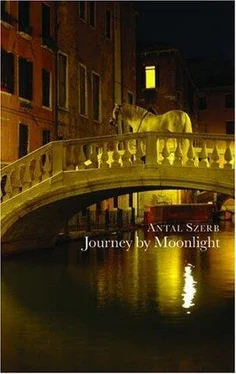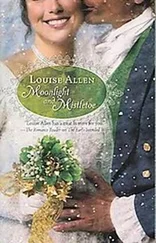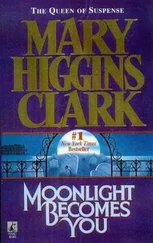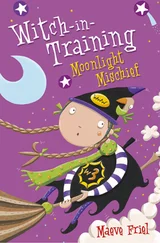Millicent looked at him in astonishment and withdrew her hand. “But Mike, how can you talk like that? I really thought you felt so strongly about painting, for a European.” And she turned away.
Mihály saw that he had struck the wrong note. He was obliged to go back to the stupid type of voice. But he could not think of stupid arguments with which to reason with her. He tried sentimentality.
“But I shall miss you terribly if you go now. Perhaps we’ll never meet again in this life.”
“Sure,” said Millicent. “I’ll miss you horribly too. And I’ve already written to Philadelphia, to Doris and Ann Mary, telling them how wonderfully well you understand me. And now we have to part.”
“But stay here.”
“That isn’t possible. But you come with me to Siena. You’re not really doing anything here.”
“That’s true. I could leave what I’m doing here.”
“Then why not come?”
After some hesitation, he confessed:
“Because I haven’t any money.”
Which was true. By now his money was almost entirely spent. It had gone on the few decent items of clothing he had bought the day before, out of respect for Millicent, and on buying her meals, which were very substantial and extremely well-chosen. True, it would be gone in a day or two even if he stayed in Foligno … but if you stay in one place you don’t feel the lack of money as much as when you are travelling.
“You’ve no money?” she asked. “How’s that?”
“It’s run out,” he said with a smile.
“And your parents don’t send you any?”
“Oh yes. They’ll send some. When I write to them.”
“Now look. Until then I’ll make you a loan.” And she took out her cheque book. “How much do you need? Will five hundred dollars be enough?”
The amount shocked Mihály, as did the offer itself. Every bourgeois scruple in him, and indeed every quiver of romantic sensibility, protested against borrowing from the object of an amour , from the heaven-sent stranger, whom he had kissed for the very first time that day. But Millicent, with charming innocence, insisted on the offer. She was always lending money to her boyfriends and girlfriends, she said. In America it was quite natural. And besides, Mihály would pay her back soon. They finally left it that Mihály would think about it overnight.
Mihály very much wanted to go to Siena, even without considering Millicent. Foligno by now bored him to death, and he really longed to go to Siena because, now that his apathy had lifted, the Italian cities once again began to press their sweet, terrible claim, that he should see every one of them and experience their secrets before it was too late. As at the start of his honeymoon, he again carried inside him the mystery Italy stood for, like a great delicate treasure he might at any moment let slip from his hands. Moreover, ever since he had kissed her, Millicent had become much more desirable, and it is in the nature of such adventures that a man likes to see them through.
But could a serious adult, a partner in a well-known Budapest firm, actually borrow money from a young girl? No, a grown-up, serious partner could not. Of that there could be no doubt. But was that what he still was? Or had he, with his desertion, his exile, returned to that earlier level, that way of life in which money was just paper and bits of silver? To put it plainly, had he reverted to the ethics of the Ulpius household?
Mihály was appalled at the thought. No, he couldn’t. It would mean that the paradise of youth had succumbed to the reality it had always denied, the reality whose chief manifestation was money.
But the conscience is easily placated when we really want something. Of course it was just a matter of a very short-term loan, a small sum. He wouldn’t take five hundred dollars: one hundred would be enough. Or, let’s say, two. Perhaps after all we should say three hundred … He would write home straightaway, and pay the money back very shortly.
He sat down and finally penned the letter. He wrote not to his father, but to his youngest brother, Tivadar. Tivadar was the bon viveur and prodigal of the family, a friend of the turf, reputed to have had a liaison with an actress. He perhaps would understand and take a tolerant view of the case.
He told Tivadar that, as he no doubt already knew, he and Erzsi had separated, but quite amicably, and that as a gentleman he would soon put everything to rights. Just why they had separated, he should say straight out, was too complicated to put in a letter. The reason he had not written earlier was that he had been lying in hospital, very ill, in Foligno. Now he was well again, but the doctors absolutely advised rest, and he would like to spend the period of convalescence here in Italy. So he really had to ask Tivadar to send him some money. In fact, as soon as possible, and as much as possible. His money had run out, and he had had to borrow three hundred dollars from a local friend, which he would like to repay as soon as possible. The money should be sent direct to his friend, at Dr Richard Ellesley’s address. He hoped everyone was well at home, and that they would see each other again soon. Any letters should be sent to the Ellesley address in Foligno, because he was moving on but did not yet know where he would be spending any length of time.
The next morning he sent the letter by airmail, and hurried off to Millicent’s room.
“So you thought it through and you’re coming, Mike?” she asked, radiantly.
Mihály nodded and with furious blushes accepted the cheque. Then he went to the bank, and to buy himself a good suitcase. The two of them bade farewell to Ellesley and set off.
They were alone in the first-class compartment and exchanged uninhibited kisses, the way the French do. For both, this was a legacy of their student years in Paris. A little later on a somewhat patrician old gentleman joined them, but by then they were past caring, and exercised the privilege of barbaric foreigners.
By evening they had reached Siena.
“Will the signore and signora require a room?” was the obliging inquiry of the porter of the hotel outside which their hansom-cab had stopped. Mihály nodded in affirmation. Millicent, unaware of the significance of the exchange, simply went up, but registered no protest on arrival.
It may perhaps seem from a distance that Millicent was not quite as innocent as Doctor Ellesley had imagined. But for just that reason she was, in her amorous mode, every bit as fresh-tasting and quietly awe-struck as at other times. Mihály found that his journey to Siena had been most worthwhile.
SIENA was the most beautiful Italian city Mihály had ever seen. It was more beautiful than Venice, finer than aristocratic Florence, lovelier even than dear Bologna with its arcades. Perhaps an element in this was that he was there not with Erzsi, officially, but with Millicent, and on the loose.
The whole city with its steep, pink streets undulated over several hills in the shape of a happy-go-lucky star. On the faces of its people you could see that they were very poor, but very happy — happy in their inimitable Latin way. The city had the quality of a fairytale, a happy fairytale, lent it by the fact that from everywhere you could see, at its highest point, the cathedral hovering over it like a towered Zeppelin, in the livery of a pantomime zebra.
One of the walls of the cathedral stood away from the main mass of the building, a good two hundred metres distant, as a grotesque and wonderful spatial symbol of the failure of the most grandiose human plans. Mihály loved the feckless way the old Italians set about building their cathedrals. “If Florence has one, then we must have one, and as large as possible,” they said, and then built the longest wall in existence in order to fill the Florentines with panic about the intended size of their project. Then the money ran out, the builders naturally downed tools and lost all interest in the cathedral. “Yes, yes,” thought Mihály, “that’s the way to go about a church. If the Ulpius set were ever to go about building a church, that is exactly how they would do it.”
Читать дальше












